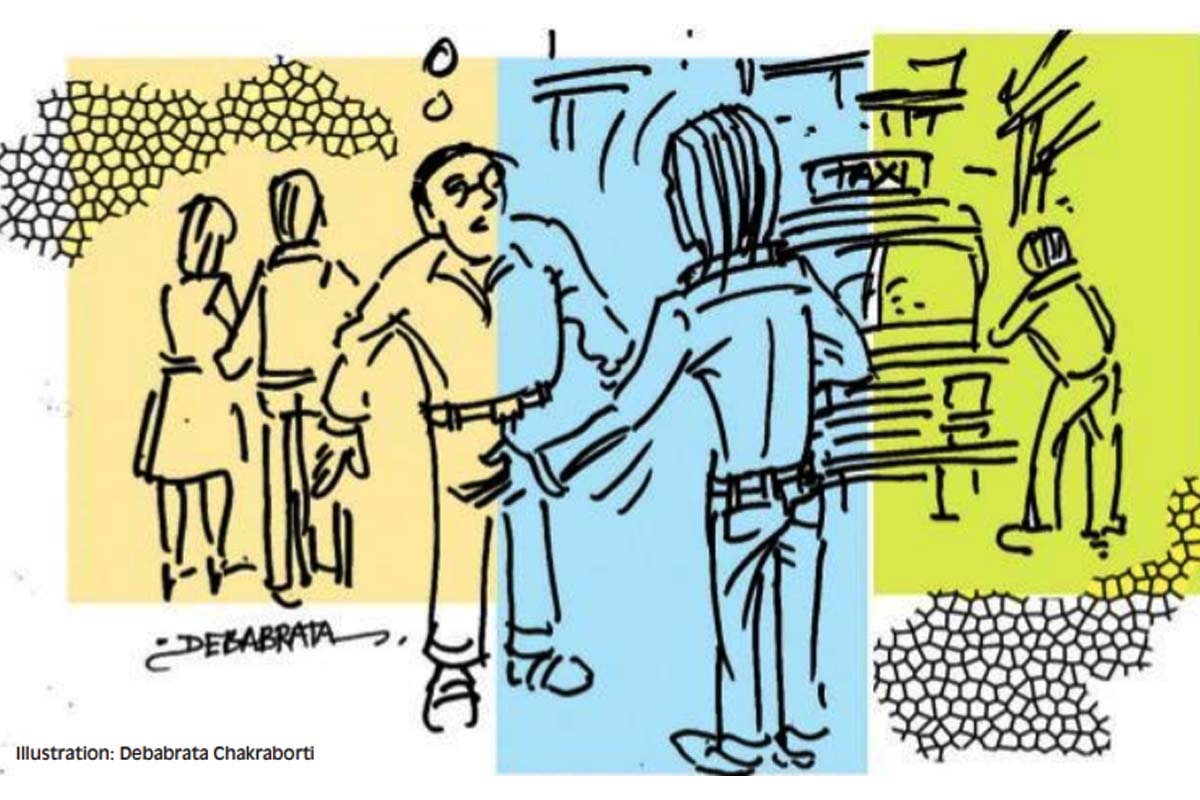Steve was a friend of a friend and we clicked easily when we met in Minneapolis. Steve was a tall and lanky man, with keen eyes and longish hair about to turn gray at the fringes. He fancied denim jackets and blue jeans and drank a lot of Coca Cola. He had worked some years in a factory but found the work dull and stifling. He bought a cab with all his savings and became a cab driver.
It was a different kind of life. He worked when he wanted to work and kept the hours that suited him. He told me he often worked at night, when there was less competition, because he was insomniac and passengers tipped better. If he did not feel tired, he sometimes worked a 16- hour shift. He didn’t even stop for coffee, like other cabbies, and kept driving with an occasional swig of coke.
Advertisement
He was a bright person, exceptionally so. I wondered why he hadn’t gone to college and carved a career for himself. Then I realized, from his description of the Catholic school his parents chose for him, that the school was no different from the factory that had so repulsed him later. A free spirit, the mindless discipline of the school had alienated him. A loss, surely.
He retained a curious spirit and sprightly interest in public affairs. He read newspapers avidly and never missed the opinion pieces. Steve said that there is something about taxis that prompted people to chat, and they often wanted to talk about more than the weather. Reading the papers helped him. He enjoyed the conversation and surprised his passengers with well-informed, well-reasoned responses. Perhaps, he said, some people boarded a taxi with the assumption that the driver would be an ignoramus. They declaimed brashly about a new tax or a controversial law. He relished their dazed look when he gently responded with a polite counter point.
Steve offered another very different reason for his reading habits. He had a short-lived relationship with a woman who enjoyed his company but could not bear to roll with his easygoing, free-floating life style. “How can you live forever without a plan, without any ambition,” he recalled her saying more than once. No, he didn’t have any ambition. Plans did not make any sense for him. They parted company after four years, but now he had a son. The mother had a plan of studies for the son, but the son loved to run away from it periodically and spend a few easy days with the dad. That was the time Steve cherished. He wanted to be able to speak knowledgeably with his high-school son; he hoped to do so even more when the son entered college the following year. He would do online courses on the subjects his son took up as a freshman.
I asked him how he got on with his son. Despite the generational difference, he was pleased that his son’s views did not differ greatly from his. They both thought, for example, that the use of marijuana should be legal, and gays and lesbians should have the same rights as everyone else. His son believed, as much as him, that good education and healthcare should be accessible to all. It pleased Steve that his son did not think him old-fashioned or wedded to obsolete ideas.
But didn’t their views differ at all, I wondered. Steve admitted, embarrassed, that they had opposite views about immigration. His son felt the country should welcome immigrants because they worked hard and contributed new ideas and energy. Americans should shed prejudice and accept them. Steve felt a stream of new people from other countries diluted the culture and made local people uncomfortable in their own land. Why should some coloured people continue to speak their own language and not assimilate?
He turned to me and said, emphatically but apologetically, “Don’t misunderstand me. You speak our language, you do an important job. You will easily become a part of the American society. You are not a problem. But others are.”
I said, “Steve, in this country, everybody starts off as an immigrant. And everybody assimilates, sooner or later. Is that really the problem? Or is it the suspicion of new people who seem a little different?”
We were having the discussion in his cab late in the evening. It was Easter night and he expected a large number of passengers. I had offered to give him company and observe his work on a busy night. Steve had enthusiastically welcomed me and said he would enjoy chatting while he worked. It was ten in the evening and we had already ferried seven clients.
We talked as we waited for the next passenger in front of the Radisson hotel. A well-dressed white man, possibly a businessman, emerged and boarded. He was about to tell Steve his destination, but stopped when he noticed me next to Steve.
“Who is that man sitting in the taxi?” he asked sharply. Steve replied, “He is my friend. Traveling with me.” The man grimaced and said, “I don’t want a coloured man in the cab with me.”
I could see Steve’s face in the street light. He blanched visibly. His jaws hardened as he made his decision. He turned to the man and said, “Then you can’t travel with me.”
It was late, and the man probably figured that he might not get another cab easily on a busy night. He persisted, “Why does that man have to be in the cab?”
Steve’s face now was a granite mask.
He said curtly, “Because, sir, he is my friend.”
my friend.” The man left and we sat silently in the taxi, waiting for the next passenger. After a long pause, Steve said quietly, “Maybe my son has a point.”
The writer is a Washington-based international development advisor and had worked with the World Bank.









